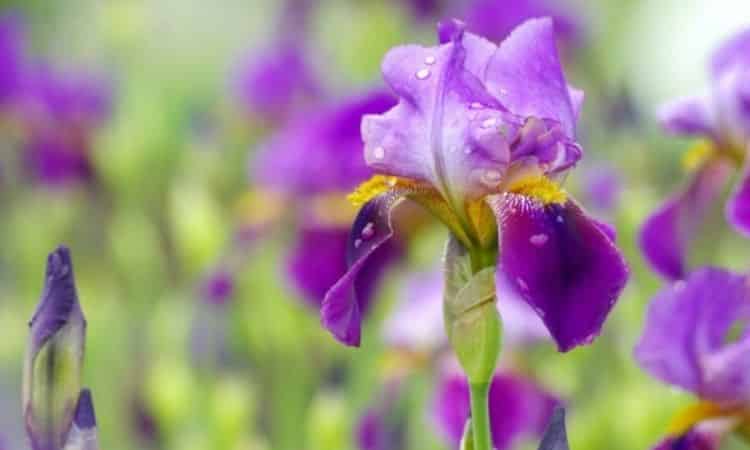Poisonous Hydrangea: Poisonous to Humans and Animals?
The question arises again and again whether the flower can be dangerous for cats, dogs, and the like. We clarify whether hydrangeas are poisonous.
That the hydrangea ( Hydrangea ) is slightly toxic is actually not a rumor. However, the same applies here: The poison lies in the dose. In any case, you don’t have to banish the beautiful flowering bush from your garden, preventive measures and a watchful eye are usually sufficient to adequately protect animals and small children. In this article, you will find out what to watch out for and what to do if poisoning does occur.
Poisonous hydrangea?
Table of Contents
The deciduous flowering shrub contains various substances that can lead to discomfort when consumed – or, in the case of an allergy, on contact. These include, for example, the glycoside hydrangea and the iso-coumarin hydrangea. Both substances are mainly found in the leaves and can cause contact allergies in certain people.
This means that the immune system reacts excessively to the substances and the affected area itches or burns, for example. The hydrangea also contains saponins, which can also be found in various medicinal plants and, in small quantities, can even have positive effects on the body. In concentrated form, however, they can also irritate the mucous membranes in the mouth and stomach region.
The only highly toxic substance in hydrangeas is hydrogen cyanide. The hydrogen cyanide inhibits an important enzyme in the respiratory chain and can quickly lead to a dangerous lack of oxygen. The extent to which the plant is ultimately poisonous, however, depends on both the amount consumed and the parts of the plant. The hydrangea is poisonous in all its parts, but the flowers and leaves have the highest concentration.
You Might Also Like How Often To Water Hydrangeas
Is the hydrangea poisonous to humans?
If a person consumes large amounts of hydrangea, its toxins can lead to symptoms of poisoning. These include symptoms such as dizziness, anxiety, shortness of breath, cramps, or circulatory problems. However, since the leaves and flowers of the hydrangea taste bitter, at least the risk of children eating large amounts is unlikely.
You might so like: Planting And Maintaining Banana Plant In Your Garden
Nevertheless, it is best to keep an eye on children and to explain that the magnificent flowers look beautiful, but are not intended for eating. If you want to be on the safe side, it is best to plant the hydrangea in a location that is out of reach for humans or animals. People who are allergic to hydrangeas do so as soon as they come into contact with the plant. If this is the case, it is advisable to swap the hydrangeas for other ornamental plants in the garden.

Note: The hydrangea is said to have an intoxicating effect, which is why it is sometimes smoked as a cannabis substitute. However, the effect has not been scientifically proven and smoking is dangerous, because hydrogen cyanide glycosides are released, which in turn hinder the transport of oxygen.
Is the hydrangea poisonous for cats, dogs, and the like?
The hydrangea is also poisonous for animals such as horses, dogs, hamsters, rabbits, guinea pigs, cats, and birds. The toxins of the colorful flowering shrub usually lead to gastrointestinal problems or circulatory problems. But even here, serious problems will only arise if you eat large amounts unless your pet is very sensitive or has an allergy. Fortunately, the bitter taste of the hydrangea has a deterrent effect on animals too. However, if your pet has once nibbled on the hydrangea, it is worth asking the vet to see if everything is okay. You might be interested in Is Lavender Toxic to Cats
You Might Also Like Flowers That Start With H
What to do in case of hydrangea poisoning?
If humans or animals have eaten parts of the hydrangea, the first thing to do is to remain calm. Stress and hectic pace stir up fear in those affected, which can exacerbate the symptoms. If you have mild symptoms, you can first call the poison control center, they can quickly answer your first questions and advise you. Afterward, however, it is advisable to consult a doctor even if the symptoms are mild. In the event of severe symptoms or even shortness of breath, an emergency doctor should be called in any case.
However, if you have decided to plant a hydrangea, you will find all the information here.







I ordered the honey w/lavender and it’s absolutely wonderful! And the chamomile with myhr body butter is simply amazing! I highly recommend these products and the teas are to die for!
Putting table scraps on a hydrangea bush can it kill the bush?